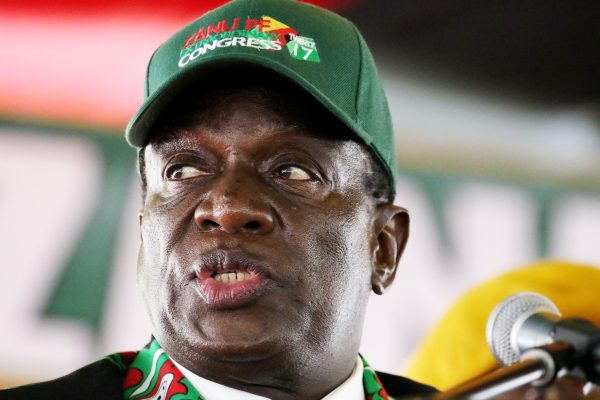
BY STAFF REPORTER
A coalition of civil society groups from Matabeleland that struck a deal with President Emmerson Mnangagwa that paved the way for a government intervention on the Gukurahundi killings is disintegrating amid allegations that it has been hijacked.
The government in March announced plans to address concerns surrounding the killing of over 20 000 civilians in Midlands and Matabeleland by the North Korean trained Fifth Brigade in the 1980s after Mnangagwa met the groups coalescing under the Matabeleland Collective banner.
Mnangagwa pledged that the government will facilitate reburials of victims of the atrocities and access to national identity documents for survivors, but the initiative is already facing collapse.
One of the founders of the Matabeleland Collective, Dumisani Nkomo resigned a fortnight ago citing frustration over the direction the initiative was taking.
Nkomo, who was the head of the secretariat, co-founded the Matabeleland Collective alongside Women of Zimbabwe Arise leader Jenni Williams.
According to insiders, the coalition has in the past few weeks been rocked by disputes fuelled by suspicions that it has been heavily infiltrated by State security agents and ruling Zanu PF moles.
Nkomo confirmed that he had resigned from the Matabeleland Collective and hinted that all was not well.
- Chamisa under fire over US$120K donation
- Mavhunga puts DeMbare into Chibuku quarterfinals
- Pension funds bet on Cabora Bassa oilfields
- Councils defy govt fire tender directive
Keep Reading
“I felt I had done my part and no individual should privatise the institution,” he said. “I was also worried about our increasing propensity for silence in the face of injustice.
“The Collective as we envisaged it was a good idea because it brought together civil society from Matabeleland for the first time in order to have a common position among players in the region.”
There were several efforts dating back to 2010 to unite civil society groups in Matabeleland, which culminated in the formation of the Matabeleland Consortium.
It included organisations such as Habakkuk Trust, Radio Dialogue, Christian Legal Society and the National Development Trust, among others, which pushed for solutions to problems facing the region.
In 2012, the consortium pushed for the implementation of devolution ahead of elections the following year and the Matabeleland Collective was viewed as a significant leap in efforts to advance regional issues.
“[The Matabeleland Collective] is a key player that must be protected and preserved,” Nkomo said. “It is critical for the Collective to continue to fight against infiltration, state capture, personal ambitions and avarice.
“I pray for the success of the Collective and deliverance from circling wolves, vultures and other political predators.”
The Matabeleland Collective is made up of over 50 civil society groups and some members complained that the alleged infiltration by the state showed that the government was not sincere in addressing the Gukurahundi issue.
Manangagwa last month met chiefs from Matabeleland and Midlands in Bulawayo where Gukurahundi topped the agenda.
The chiefs submitted a document to the president where they advised him to apologise for the atrocities before seeking solutions to a number of issues that arose after the killings.
Mnangagwa was also told that he could not be a neutral arbiter in the matter because of his involvement in the atrocities. The president was the State Security minister at the time.










